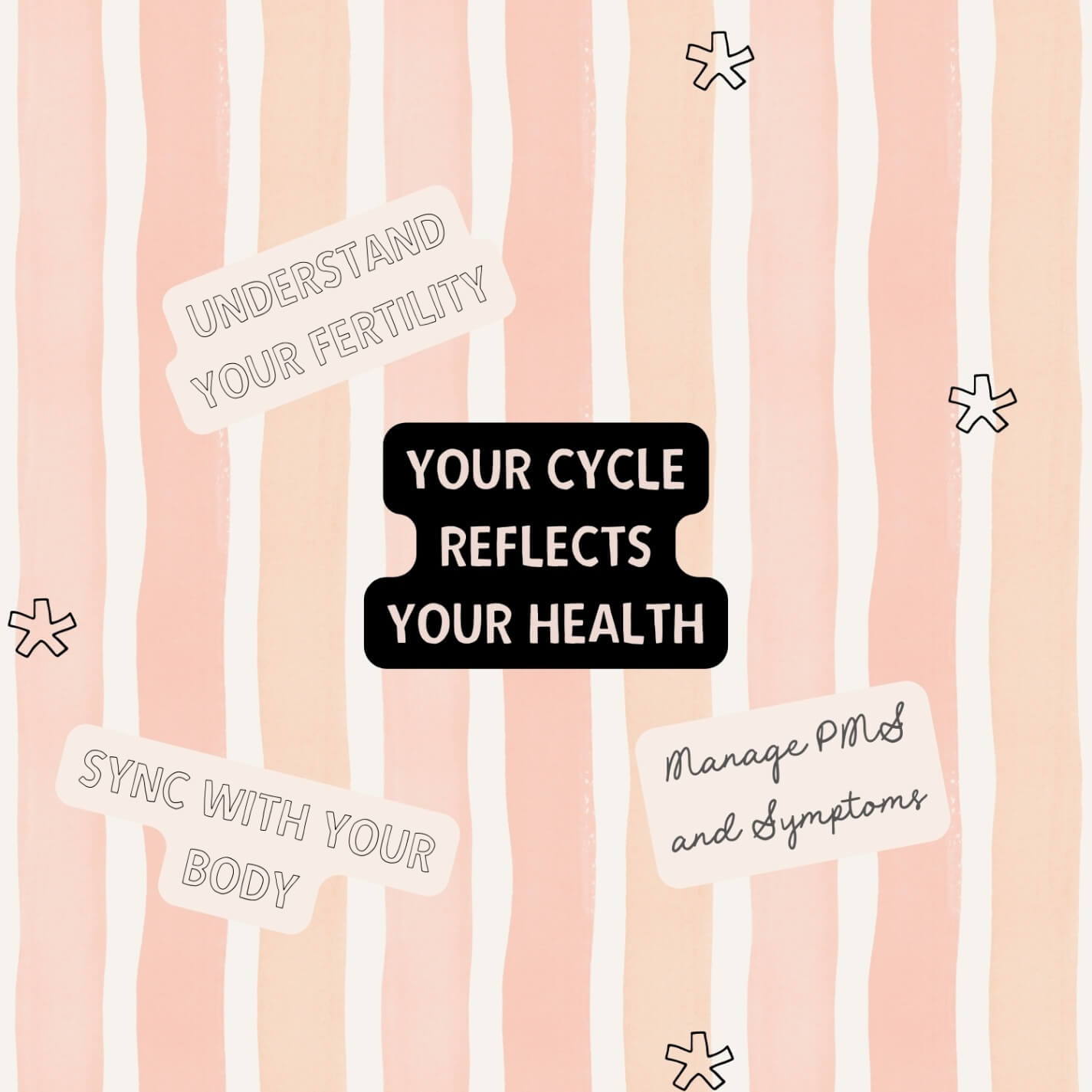
Ready for the biggest myth of all?! PMS and cramping are normal, and there’s nothing you can do about it.
WRONG.
While those conditions are incredibly common, they are NOT normal, and 50 years of doctors slapping us on birth control as the answer has created another whole host of issues.
Ready for some good news?!
We have information and tools to help get things back under control.
Your menstrual cycle is like a built-in health report, giving you clues about your body’s overall well-being.
It’s not just about tracking your period—your cycle reflects everything from your hormonal balance to how stress, diet, and lifestyle choices are affecting you. Paying attention to it can help you feel more in tune with your body as you take charge of your health naturally. If you are interested in learning more, I have a class for you and you can choose how you want to participate. In this class, we'll ask questions, listen to our bodies, and discover ways we can lean into to our hormonal balance with practical, daily practices.
Ways to participate: text or email or Live Zoom
If you would like a text version of this class, you will get a slightly shorter version but still amazing information. You need to text the word CYCLE to (417) 553-1500. The class will start arriving in text form and you will get a new text every 5 minutes over the course of an hour and a half.
If you would prefer a slightly more in-depth version, I can send it to you via email where you will get 1 email a day for 6 days.
Click here for the email version.
If you want to join a Live Zoom class where my friend Courtney will be teaching February 27th at 8pmCT, Click Here
XO,
Melinda Haak

Have you ever struggled with unexplained weight gain, brain fog, low energy, and/or lower belly bloat?
Until about the age of 45, I had zero issues shedding the extra 10 pounds I always gained over the winter months. But my first summer past 45, I could not no matter how hard I tried.
Beginning in your late 30's, 40's, & 50's, there is a progressive loss of ovulation, and a DECLINE in progesterone and estrogen. These fluctuations influence our insulin, and so many of us struggle with excessive cortisol levels.
This leads to the unexplained fat deposition (typically in the mid-section) & weight gain occurs WITHOUT any changes to your typical diet or activity level. But there are things that can be done to support these hormonal shifts, prevent weight gain, and even lose fat. However, diet and exercise MUST be approached differently than it was in your 20's and early 30's.
Adjustments we need to make:
1. No longer skipping meals. Instead eating 3 well rounded ones spread apart by 3.5-4 hours. Aim for 120-140 grams of protein in a day. If I snack, it's usually a Ningxia Red packet and yogurt or some other protein like Beef Sticks.
2. Begin each day with 20-40g protein and eat within 60 minutes of waking.
3. Rather than fasting in the morning, fast 3 hours before bed.
4. Prioritize sleep by getting at least 7-8 hours. See previous blog post for tips if your struggle with sleep.
5. Swap the HIIT (high intensity interval training) for weight training minimum of 3x a week.
6. Swap the long distance running to walking 8,000-10,000 steps a day on an incline.
7. Prioritize relationships whether that is time with family of friends. We are meant to live in community.
Other things I personally have used to help support my hormones as well as support a healthy weight are Progessence Plus from Young Living and FemiGen or EndoGize. I'll put a link here that explains HOW they are supportive. https://m.lfstps.com/44ao5/CHw3X My husband has joked for the last 10 years that if we were ever stranded on a deserted island, I had better have my PP (Progessence Plus) with me! I'm definitely very moody without it and keep it right next to my toothbrush so I don't forget to use it morning and night. What I didn't know until a couple of years ago though, is that our bodies CANNOT make healthy hormones if we are not getting enough protein in a day. When I started really focusing on getting adequate protein this past year, I noticed my moods were better, my digestion was better, sleep was better, and my weight stabilized.
I hope these little insights are helpful and encouraging to you! We're all learning together!
Blessings!
Melinda Haak


